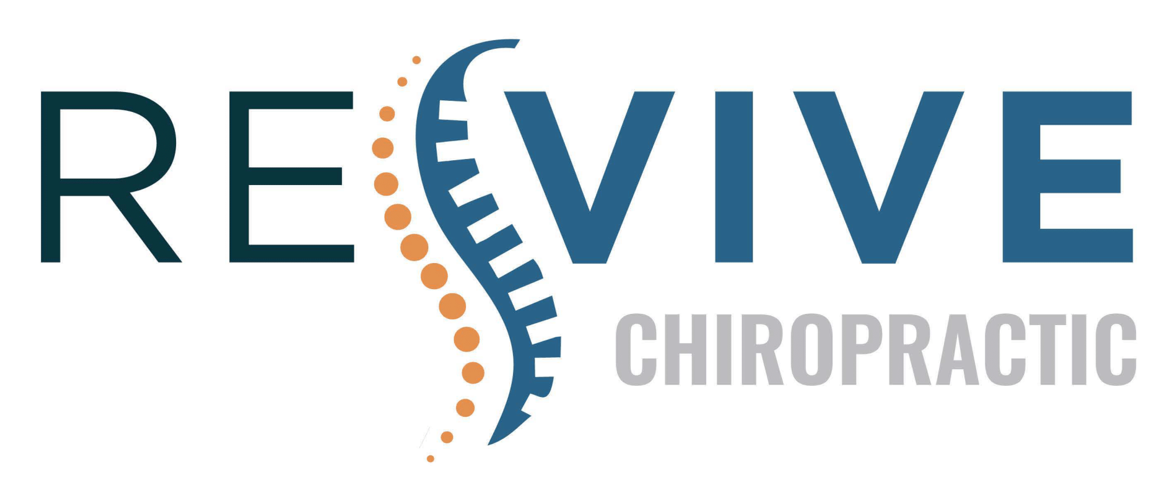If you're struggling with chronic tension headaches, you might be surprised to learn that relief can come from unexpected sources. While medication is often the go-to approach, practices like yoga, mindfulness, and even acupuncture could offer significant benefits. Exploring these alternative therapies might just change your daily routine and improve your quality of life. But what if the key to alleviating your pain lies in something as simple as the air you breathe or the foods you eat? Let's uncover these surprising solutions together.
Understanding Chronic Tension Headaches
Chronic tension headaches are more common than you might think, affecting millions of people every day. If you've ever experienced that dull, aching pain wrapped around your head, you know how debilitating these headaches can be. Unlike migraines, tension headaches don't usually come with nausea or sensitivity to light, but they can last for hours or even days, making it hard to focus on anything.
Understanding what triggers your tension headaches is vital. Often, they arise from a mix of muscle tension, poor posture, and emotional stress. When your neck and shoulder muscles tighten, they can create a cycle of pain that's hard to break. It's important to pay attention to your body and notice if certain activities or environments worsen your headaches.
You might find that long hours at a computer, holding your phone between your shoulder and ear, or even grinding your teeth can be contributing factors. It's also worth noting that dehydration and inadequate sleep can play significant roles in headache development. By recognizing these patterns, you can start to make changes that could lead to relief.
Additionally, chronic tension headaches can be accompanied by fatigue and irritability, which further complicates your day-to-day life. By learning more about your specific triggers and understanding the mechanics of tension headaches, you can take the first steps toward managing your pain more effectively.
The Role of Stress Management
Stress plays a significant role in triggering chronic tension headaches, so managing it effectively is essential.
You can incorporate mindfulness techniques, deep breathing exercises, and time management strategies to help reduce stress levels.
Mindfulness Techniques
When it comes to managing tension headaches, incorporating mindfulness techniques can make a significant difference in your daily life. Mindfulness helps you stay present and reduces stress, which can often trigger headaches.
By practicing these techniques, you can cultivate a sense of calm and resilience.
Here are four mindfulness techniques you can easily integrate into your routine:
- Body Scan: Take a few minutes to mentally scan your body from head to toe. Notice any areas of tension and consciously relax them.
- Mindful Walking: While walking, focus on the sensation of your feet touching the ground. Pay attention to your surroundings, like the sounds and sights, to ground yourself in the moment.
- Gratitude Journaling: Spend a few minutes each day writing down things you're grateful for. This practice shifts your focus from stressors to positive aspects of your life.
- Mindful Eating: When you eat, slow down and savor each bite. Pay attention to the textures and flavors of your food, which can enhance your overall awareness and reduce stress.
Deep Breathing Exercises
In the midst of a busy day, deep breathing exercises can serve as a powerful tool for managing tension headaches. When stress builds up, it often manifests as tightness in your neck and shoulders, leading to discomfort and headaches. By incorporating deep breathing into your routine, you can effectively reduce this tension.
Start by finding a quiet space where you can focus. Sit comfortably or lie down, and place one hand on your chest and the other on your abdomen. Inhale slowly through your nose, allowing your abdomen to rise while keeping your chest relatively still. Hold that breath for a moment, then exhale gently through your mouth.
Repeat this process for several minutes, paying attention to how your body feels. As you breathe, visualize stress leaving your body with each exhale. This simple practice not only calms your mind but also increases oxygen flow to your muscles, promoting relaxation.
Make deep breathing a daily habit, especially during stressful moments. You'll likely notice a significant reduction in tension headaches, helping you feel more centered and in control throughout your day.
Time Management Strategies
Effective time management can be a game changer in reducing the frequency and intensity of chronic tension headaches. When you manage your time well, you lower stress levels and create a more balanced lifestyle.
Here are four strategies to help you take control:
- Prioritize Tasks: Identify what's truly important each day. Focus on high-impact tasks first, which can help you feel accomplished and less overwhelmed.
- Set Boundaries: Learn to say no when necessary. Protect your time to avoid overcommitment, which can lead to stress and headaches.
- Take Breaks: Schedule short breaks throughout your day. These moments allow you to recharge, reducing tension that can contribute to headaches.
- Plan Ahead: Use a planner or digital calendar to organize your week. Having a clear view of your obligations reduces uncertainty and helps you manage your time effectively.
Benefits of Regular Exercise
Regular exercise offers numerous benefits that can greatly alleviate chronic tension headaches. When you engage in physical activity, your body releases endorphins, which are natural painkillers. These chemicals help reduce the perception of pain, making your headaches less intense and frequent.
Plus, exercise helps improve blood circulation, ensuring that your brain and muscles receive the oxygen and nutrients they need to function efficiently.
Incorporating regular workouts into your routine can also help reduce stress, one of the primary triggers of tension headaches. When you exercise, you're not just working your body; you're also clearing your mind. This mental clarity can lead to better stress management, helping you navigate daily challenges more effectively.
Activities like yoga or tai chi not only strengthen your body but also promote relaxation and mindfulness, further aiding in headache prevention.
Moreover, committing to a consistent exercise routine can enhance your overall sleep quality. Quality sleep is essential for maintaining a healthy lifestyle and reducing headache occurrences. When you're well-rested, you're better equipped to handle stress and any potential headache triggers.
Finally, regular exercise can help you maintain a healthy weight. Excess weight can strain your neck and back muscles, contributing to tension headaches. By staying active, you're not only improving your physical health but also decreasing the likelihood of headaches caused by muscle tension.
Exploring Alternative Therapies
Seeking relief from chronic tension headaches often leads individuals to explore alternative therapies, which can provide effective management strategies beyond conventional treatments.
These therapies can help you find balance and alleviate the discomfort that often accompanies tension headaches. Here are four alternatives worth considering:
- Acupuncture: This ancient practice involves inserting thin needles into specific points on the body. Many people find that it helps reduce headache frequency and intensity by promoting relaxation and releasing tension.
- Massage Therapy: A skilled massage therapist can target tight muscles in your neck, shoulders, and scalp. Regular sessions may help relieve stress and foster relaxation, considerably reducing headache occurrences.
- Yoga and Mindfulness: Practicing yoga can enhance your body awareness and flexibility while promoting relaxation. Incorporating mindfulness techniques, like meditation or deep breathing, can help you manage stress, a common trigger for tension headaches.
- Chiropractic Care: Chiropractic adjustments aim to correct misalignments in your spine, which can contribute to headache pain. Many individuals report considerable relief after a series of adjustments and improved overall well-being.
Exploring these alternative therapies can empower you to take control of your health.
While it's important to consult with a healthcare professional before starting any new treatment, you might discover that these approaches complement your existing headache management strategies and enhance your quality of life.
Nutrition's Impact on Headaches
Understanding nutrition's impact on headaches can be a game changer in managing your symptoms. What you eat plays a vital role in how often and how intensely you experience headaches. Certain foods can trigger headaches, while others can help alleviate them. Identifying your personal triggers is essential.
Common culprits include processed foods, aged cheeses, and foods containing MSG or nitrates. These ingredients can lead to inflammation and headaches. Keeping a food diary can help you pinpoint what might be causing your discomfort. If you notice a consistent pattern between certain foods and your headaches, try eliminating them from your diet.
On the flip side, incorporating anti-inflammatory foods can be beneficial. Foods rich in omega-3 fatty acids, such as fatty fish, walnuts, and flaxseeds, can help reduce inflammation. Leafy greens, berries, and nuts are also excellent choices that provide antioxidants and other nutrients to support your overall health.
Staying hydrated is another significant factor. Dehydration is a common headache trigger, so make sure you're drinking enough water throughout the day. Aim for at least eight glasses daily, and more if you're active.
Lastly, consider the timing of your meals. Skipping meals can lead to blood sugar drops, triggering headaches. Eating balanced meals with a mix of carbohydrates, proteins, and healthy fats can help stabilize your blood sugar levels.
Mindfulness and Meditation Techniques
Mindfulness and meditation techniques offer powerful tools for managing chronic tension headaches.
These practices not only help reduce stress but also promote relaxation and awareness of your body. By incorporating mindfulness and meditation into your daily routine, you can create a more balanced mental state, which may alleviate headache frequency and intensity.
Here are four effective techniques to get you started:
- Deep Breathing Exercises: Find a quiet space, sit comfortably, and focus on your breath. Inhale deeply through your nose, hold for a moment, and exhale slowly through your mouth. Repeat this for five to ten minutes. This simple technique can help lower stress levels and relieve tension.
- Body Scan Meditation: Lie down in a comfortable position and close your eyes. Gradually bring your attention to different parts of your body, starting from your toes and moving upwards. Notice any areas of tension and consciously relax them. This helps you connect with your body and release built-up stress.
- Guided Imagery: Visualize a peaceful scene, such as a beach or forest. Imagine yourself in that environment, absorbing the sights, sounds, and smells. This mental escape can distract you from headache pain and promote relaxation.
- Mindful Walking: Take a slow, deliberate walk while focusing on your surroundings. Pay attention to each step, the ground beneath your feet, and the rhythm of your breath. This practice encourages mindfulness while providing gentle physical activity.
Incorporating these techniques into your routine can help you manage chronic tension headaches effectively.
Importance of Sleep Hygiene
Sleep plays an essential role in managing chronic tension headaches. When you don't get enough quality sleep, your body can become more susceptible to stress and tension, triggering those pesky headaches. Prioritizing sleep hygiene is vital for not only improving your sleep quality but also for reducing headache frequency.
To enhance your sleep hygiene, start by establishing a consistent sleep schedule. Go to bed and wake up at the same time every day, even on weekends. This helps regulate your body's internal clock, making it easier for you to fall asleep and wake up refreshed.
Create a calming bedtime routine—engage in relaxing activities like reading, gentle stretching, or taking a warm bath to signal to your body that it's time to wind down.
Your sleep environment matters, too. Make sure your bedroom is dark, quiet, and cool. Investing in good-quality bedding and pillows can greatly improve your sleep experience.
Avoid screens for at least an hour before bed, as the blue light emitted can interfere with your ability to fall asleep.
Finally, be mindful of what you consume, especially close to bedtime. Limit caffeine and heavy meals in the evening, as they can disrupt your sleep.
Natural Supplements for Relief
When you're struggling with chronic tension headaches, natural supplements might offer some relief.
Herbal remedies and essential oils can provide benefits that help ease your discomfort.
Let's explore how these options can support your well-being.
Herbal Remedies Overview
For those seeking relief from chronic tension headaches, herbal remedies can offer a natural alternative to conventional treatments.
These remedies often come with fewer side effects and can be a great addition to your wellness routine. Here are four herbal options you might consider:
- Peppermint: Known for its soothing properties, peppermint can help improve circulation and relax muscles, making it a popular choice for headache relief.
- Feverfew: This herb has been used for centuries to reduce headache frequency and severity. It's believed to inhibit inflammation and may help prevent tension headaches.
- Ginger: Not just a kitchen staple, ginger can also reduce headache symptoms by blocking inflammation and aiding digestion, which can be beneficial if your headaches are tension-related.
- Willow Bark: Often referred to as "nature's aspirin," willow bark contains salicin, which may help in alleviating pain similar to conventional pain relievers.
Incorporating these herbal remedies into your routine could provide the relief you need.
Always consult with a healthcare professional before starting any new supplement to verify it's right for you.
Essential Oils Benefits
Essential oils can be a powerful ally in your quest for relief from chronic tension headaches. These natural supplements offer a variety of benefits that can ease discomfort and promote relaxation.
Lavender oil, for instance, is well-known for its calming properties. You can simply inhale its aroma or apply diluted oil to your temples for soothing relief.
Peppermint oil is another excellent choice; its menthol content can help improve circulation and alleviate tension. Just a few drops on your forehead or a gentle massage can work wonders.
Eucalyptus oil can also assist in relieving headache symptoms by opening up your sinuses and promoting easier breathing.
To maximize the benefits, consider using a diffuser to fill your space with calming scents or adding a drop or two to your bath for a relaxing soak.
Remember to always dilute essential oils with a carrier oil before applying them to your skin to avoid irritation.
Conclusion
Incorporating these surprising solutions can transform your approach to managing chronic tension headaches. By embracing stress management techniques, exploring alternative therapies, and prioritizing nutrition and sleep, you can take control of your well-being. Don't underestimate the power of mindfulness, yoga, and natural supplements—they can make a significant difference. Remember, finding the right combination for you might take time, but with patience and persistence, relief is within your reach. Take that first step towards a headache-free life!



